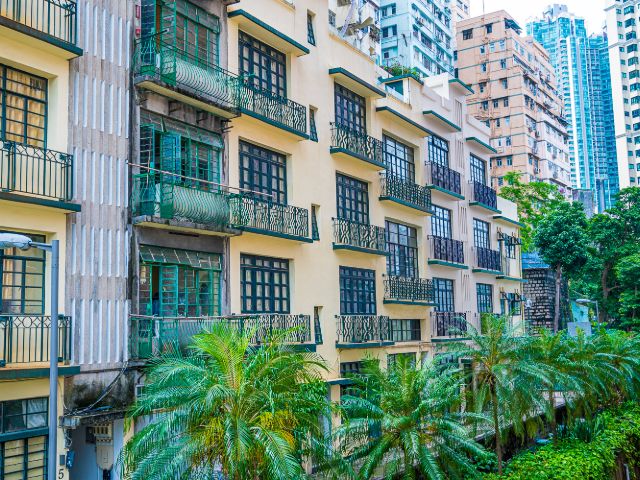Hong Kong’s Immigration Department has simplified eligibility and enrollment for the self-service immigration clearance (e-Channel) for qualifying frequent visitors. Visit their website to learn more.
For almost a century, Hong Kong’s streets have embraced the inky evening sky glowing with a symphony of neon lights as dazzling as those that dance across Victoria Harbour. The signs that once cascaded from the upper levels of tong laus (tenement buildings) in kaleidoscopic fuchsias, yellows and greens first arrived in the 1920s as an innovative way for businesses to advertise their services.
However, it wasn’t until the post-war period that the city began to shine with its iconic brilliance, as factories competed with workshops to carefully sculpt, bend and blow the delicate, gas-filled glass tubes into emblems of a prosperous metropolis.
With the onset of more cost-efficient alternatives to neon, like LED, major manufacturers have made way for only a handful of remaining artisans. But, thanks to auteurs from Wong Kar-wai to Ridley Scott, who immortalised Hong Kong’s inimitable cityscape in their films, a new generation of artists, designers and historians are doing what they can to keep the neon lights shining.
One such creative is Karen Chan, an artist and designer who exhibits under quiettomymess, and also organises exhibitions dedicated to the traditions of Hong Kong. In early 2019 she curated a neon-led installation My Light, My Hood at Kong Art Space in Central in collaboration with one of the city’s last neon makers, Master Wong. “I felt it was very important to work with one of the oldest and most prominent masters in Hong Kong for the exhibition. He’s 70-something and he’s been in the industry for 60 years,” says Chan.
For Chan, neon is a “visual language” unique to Hong Kong, and by assuming an artistic approach to what was originally a commercial product, that language can take on new meaning. “We’re always talking about art and culture and how they are interlinked,” she explains. “Neon is integral to Hong Kong culture, and people are starting to see it as an art form. As we accept that it is part of our visual culture and language, so too do we appreciate the artisanal skills behind it and elevate it even further.”
“Hong Kong is a very exciting and dynamic city, and we are always looking to be better, to be more modern. But in doing so, a lot of our traditions might be lost or may fade,” Chan says. “That’s also why the neon light exhibition was important, for me and for the other artists, to allow us to explore how can we allow Hong Kong’s traditional crafts to evolve with time, and how our artistic approach can give them new meaning.”
And there is increasing evidence that her conviction is shared, as young, independent, homegrown companies — from restaurants to bars to fashion brands — seek to offer neon a new home, one that is away from the elements and given pride of place in the way that paintings often are.
“Neon is a very strong part of our local culture, of our visual language, and although we have been moving away from it, I feel positive,” says Chan. “I think we can find a way to preserve neon and to elevate it. That’s why, by helping the masters to collaborate with artists and designers, we can make it into an art form.”
Neon signs can still be found in some parts of Hong Kong: Temple Street Market
{{title}} Address {{address}} Website {{website}} More info , Tung Choi Street
{{title}} Address {{address}} Website {{website}} More info in Mong Kok and Lockhart Road
{{title}} Address {{address}} Website {{website}} More info in Wan Chai are host to a few examples. Follow our route for a neon-lit night, complete with tips to capture the best shots. Meanwhile, a slew of local bars and restaurants like Bound by Hillywood
{{title}} Address {{address}} Website {{website}} More info , Holy Eats
{{title}} Address {{address}} Website {{website}} More info , Ping Pong Gintoneria
{{title}} Address {{address}} Website {{website}} More info and Tai Lung Fung
{{title}} Address {{address}} Website {{website}} More info are paying homage to the art form; go find the lights at these hot spots, as recommended by Karen.
For more about traditional and modern-day neon signage in Hong Kong, see the excellent interactive platform here. Hosted by M+ it features maps, audio tours, videos, interviews and articles.
For more in-depth information about neon signage in Hong Kong, watch the episode Keep the Neon On of the Lord Wilson Heritage Trust’s video series on Hong Kong’s human heritage.
The Hong Kong Tourism Board disclaims any liability as to the quality or fitness for purpose of third party products and services; and makes no representation or warranty as to the accuracy, adequacy or reliability of any information contained herein.
Information in this guide is subject to changes without advance notice. Please contact the relevant product or service providers for enquiries.





